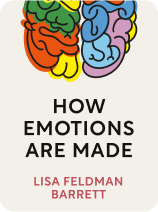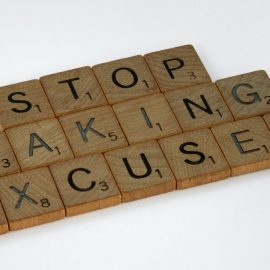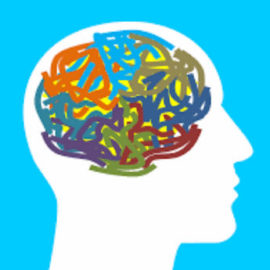

This article is an excerpt from the Shortform book guide to "How Emotions Are Made" by Lisa Feldman Barrett. Shortform has the world's best summaries and analyses of books you should be reading.
Like this article? Sign up for a free trial here.
Are you responsible for your own feelings? What is the scientific explanation of biology and emotions?
Neuroscientist and psychologist Lisa Feldman Barrett created the new “theory of constructed emotions” after an in-depth examination of past psychological experiments. Barrett’s findings reveal that you are responsible for your own feelings because emotions are not innate—they’re constructed by you.
Read on to learn why you are responsible for your own feelings, according to Barrett’s theory of emotions.
“Animal Emotions” Don’t Exist
Myth: You’re not responsible for your emotions because they are passed down from an early animal ancestor and are built into your nervous system through evolution.
Reality: Your emotions aren’t hardwired into your brain; your brain constructs them using concepts. Your emotions are the product of every emotion concept you’ve ever learned, so Barrett maintains that you are responsible for your own feelings and learning new concepts to rewire your brain for different actions.
According to the traditional view of emotion, if you have an angry outburst, you aren’t responsible for your own angry feelings, because your “anger circuits” just got activated. Barrett explains that this view of emotions finds its origins in part in Charles Darwin’s 1872 book The Expression of the Emotions in Man and Animals, which theorizes that emotions are passed down to us, unchanging, from an early animal ancestor. As a result, humans are at the mercy of their animal emotions.
(Shortform note: Researchers at Cornell University recently discovered a genetic variation that makes carriers more susceptible to intense emotions than the average person, supporting the theory that there’s a biological component to how we feel and process emotions. The researchers do not indicate in any way, however, that this discovery absolves the carrier of personal responsibility for their behavior.)
Why You’re Responsible for Your Own Feelings: Barrett’s Theory of Emotion
Under Barrett’s theory of constructed emotion, however, you are responsible not only for how you handle your feelings but for the emotions themselves. Emotions aren’t the product of evolution; rather, they’re passed down from one generation to the next as cultural concepts, and your brain makes emotions using the concepts it’s learned.
If you have an angry outburst, your actions are shaped by all your past experiences (as concepts) that led up to that moment. As a baby, you can’t choose what concepts other people put into your head. But as an adult, you can choose what you expose yourself to and therefore what emotion concepts you learn. By changing your concepts, you can change your future emotions, and thus, your actions.
(Shortform note: One way that adults can “rewire” negative emotion concepts from childhood is through EMDR therapy—a practice in which the patient briefly revisits a traumatic memory while following a structured eye movement stimulation. This practice is becoming increasingly common in psychotherapy for treatment of PTSD.)

———End of Preview———
Like what you just read? Read the rest of the world's best book summary and analysis of Lisa Feldman Barrett's "How Emotions Are Made" at Shortform.
Here's what you'll find in our full How Emotions Are Made summary:
- A deep dive into what emotions really are and where they come from
- How some cultures have different emotions than others
- The difference between feelings and emotions






